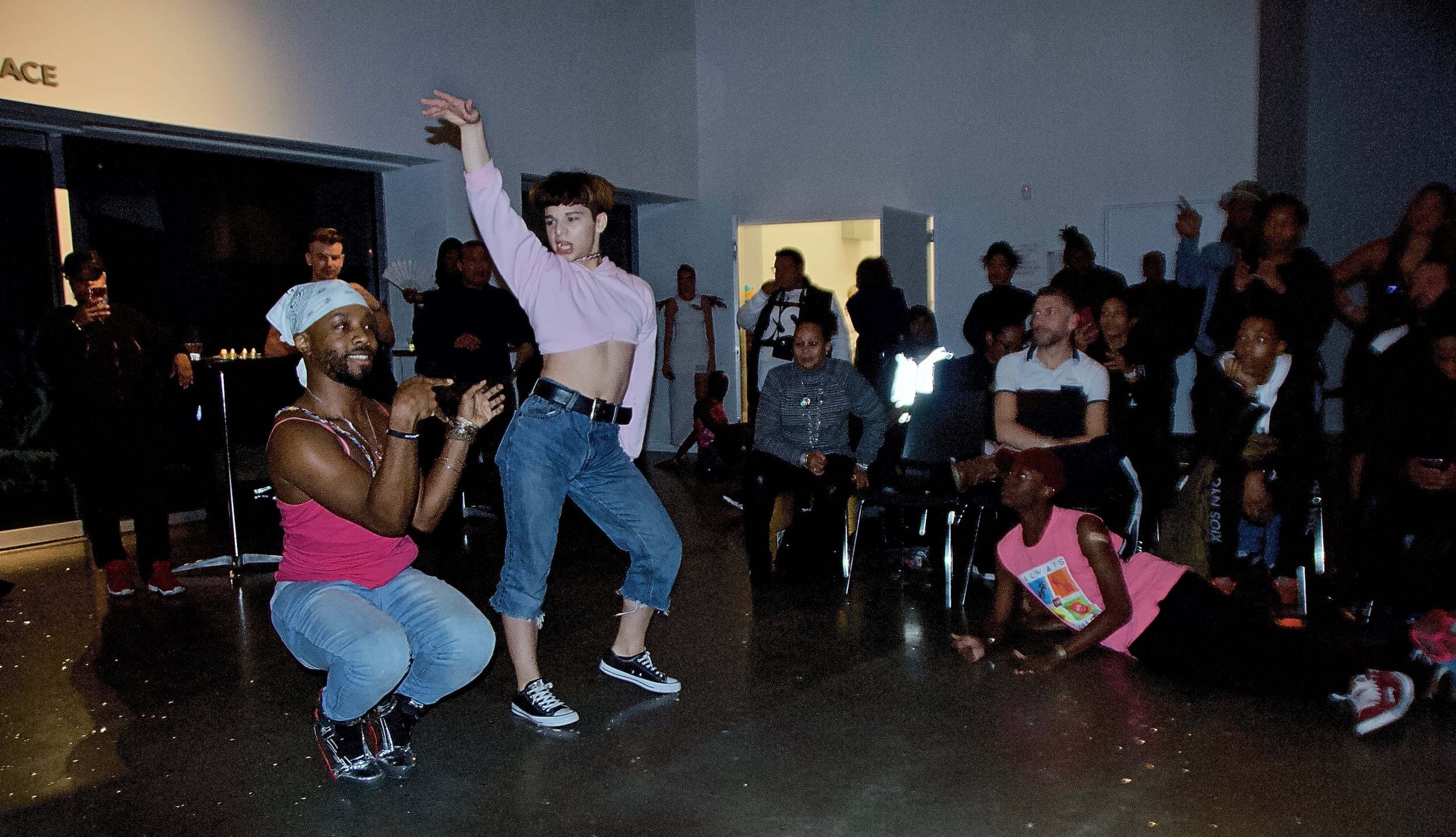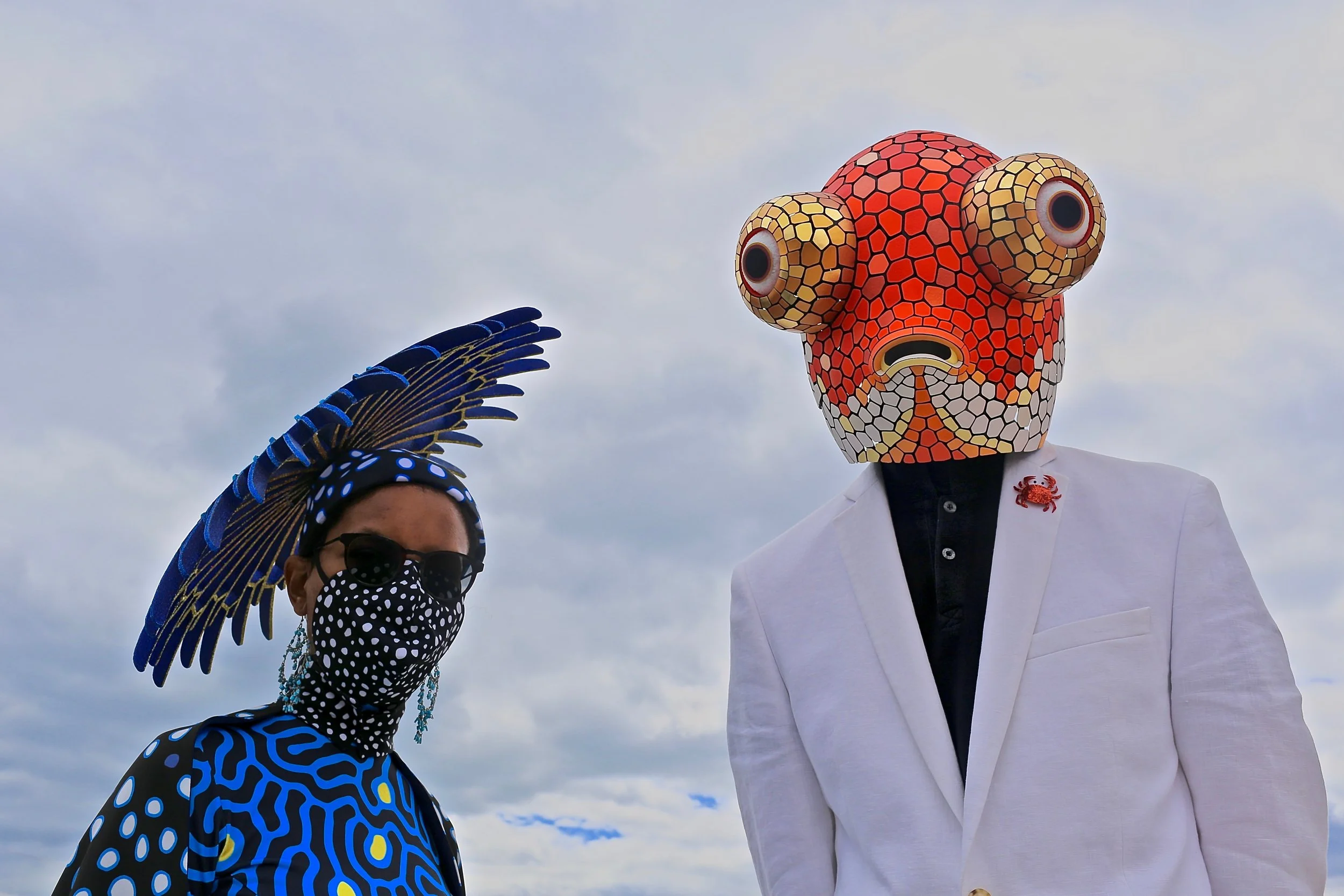Haus De la Blanca: 11th Anniversary Ballroom at The Bronx Museum For The Arts
© Ruben Natal-San Miguel
All images by Ruben Natal-San Miguel
Ball culture, the house system, the ballroom community, and similar terms describe an underground LGBTQ subculture in the United States in which people "walk" (i.e., compete) for trophies and prizes at events known as balls. Some who walk also dance; others compete in drag categories, designed to emulate other genders and social classes. Most participants in ball culture belong to groups known as “houses”
© Ruben Natal-San Miguel
© Ruben Natal-San Miguel
Houses serve as alternative families, primarily consisting of Black and Latino gay, gender nonconforming and transgender youth, and are meant to be safe spaces. Houses are led by “mothers” and “fathers,” providing guidance and support for their house “children.” Most houses operate in the same way. Houses exist across the United States and in over 15 cities, most being in the Northeastern Coast. The major cities are New York, Newark, Jersey City, Philadelphia, Baltimore, and Washington, D.C., as well as Oakland and the San Francisco Bay Area. Houses that win a lot of trophies and gain recognition, reach a rank of “legendary''. Notable houses include Haus De La Blanca featured here in this event at the Bronx Museum of the Arts and founded by Julian De la Blanca, the House of Ninja (founded by Willi Ninja), House of Aviance (founded by Mother Juan Aviance), House of Xtravaganza (founded by Hector Xtravaganza, né Hector Valle), House of Princess, House of Infiniti, House of Mizrahi (founded by Jack and Andre Mizrahi), House of LaBeija (founded by Crystal LaBeija), House of Dupree (founded by Paris Dupree), House of Amazon (founded by Leoimy Maldonado),House of Mugler (founded by David, Raliegh and Julian), House Balenciaga (founded by Harold Balenciaga), House of Ebony (founded by Larry Ebony), and the House of Garcon (founded by Whitney and Shannon Garcon). Typically house members adopt the name of their house as their last name. Historically, four categories of gender exist within houses: Butch queens, femme queens, butches, and women.
© Ruben Natal-San Miguel
© Ruben Natal-San Miguel
Houses "walk" (compete) against one another in "balls" judged on dance skills (voguing), costumes, appearance, and attitude. Participants dress according to the category in which they are competing, and are expected to display appropriate "realness". Balls are influenced by hip-hop fashion and music. The largest balls last as long as ten hours, with dozens of categories in a single evening. With fewer spectators, nearly everyone comes to compete; some trophies are 12 feet (3.7 m) tall, and a grand-prize winner can earn $1,000 or more. Although some competitive walks involve cross-dressing, in other cases the goal is to accentuate a male participant's masculinity or a female participant's femininity as a parody of heterosexuality. Voguing consists of five elements: duckwalk, catwalk, hands, floorwork, and spins & dips.
© Ruben Natal-San Miguel
© Ruben Natal-San Miguel
© Ruben Natal-San Miguel















